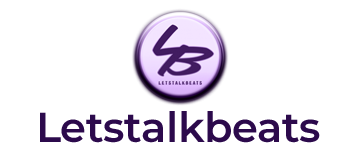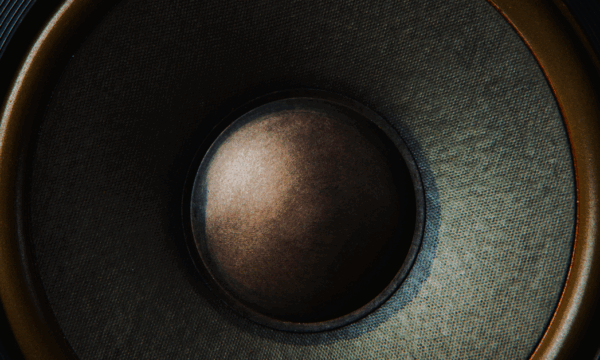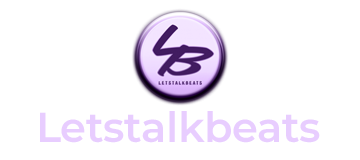How a Late Night Decision Could Help You
We added 18 new tracks to our catalog. This could spark your own music entrepreneur adventure. For years, we’ve run Letstalkbeats with a simple but powerful mission. To help 1,000 rappers and producers become the hero in their own music entrepreneur adventure. That’s not just a slogan to us it’s a call to action rooted in our own lived experience as a business, team player, and independent artist. But despite that mission we had a confession to make. Even after years of releasing music. Growing a personal collection and library. Heading a household, building a publishing company and running a website and YouTube channel. We never actually personally took the steps to register music on ASCAP. The performing rights organization we signed up with years ago.
That changed this week. In one focused evening session we logged into our ASCAP accounts. Dusted off the login info and got to work. By the end of the night, we had successfully registered 9 songs and their 9 instrumental counterparts a total of 18 individual works. Each one officially recognized and protected. That single act felt like crossing a line between talking about independence and living our music entrepreneur adventure. We want to share that moment with you. Not just to celebrate, but to show you how achievable this is. If you’re ready to take your music seriously keep reading.
This blog post isn’t just about us. It’s about you, the artist or producer who may still be releasing tracks on social media. Uploading songs to YouTube without knowing where it all leads. Whether you’re managing projects. Producing records for friends. Just sitting on a hard drive full of unreleased material this is your moment as well. We’re breaking down the why, the how, and the truth about how to own your music catalog. The power you’ve been looking for might already be in your hands.
The Real Meaning of Owning Your Music ASCAP
When we talk about how to own your music catalog. It can sound vague or abstract like something reserved for industry artists with managers and lawyers. But the facts of the matter are ownership starts the moment you create something original. If you wrote the lyrics. Made the beat then recorded the song. To designing the structure you own something. But owning something and registering music with ASCAP to claim it properly are two different things.
Registering your music with a performing rights organization (PRO) like ASCAP is how you officially add your piece of the pie. It’s how you get paid when your music is streamed, performed, played in a venue, used in a YouTube video, or broadcast. Without registration, you’re invisible to the royalty systems that are designed to pay you. They can’t pay you for what they can’t see. And the crazy part? Most independent artists never get around to registering their work. It sits in limbo loved by fans, ignored by the royalty system.
What makes this even more powerful is the fact that the process is completely accessible. You don’t need a team or a distributor to get started. If you’re already registered as a songwriter and publisher with ASCAP (which you can do online in under an hour), you’re 90% of the way there. The last 10% is simply entering your track data, assigning roles, confirming splits, and submitting the form. That’s it. It’s not sexy. It’s not flashy. But it’s the foundation of everything else. Once your songs are registered you’ve planted the flag in your creative territory. And no one can take that away.
Why Both a Songwriter and Publisher Music ASCAP Account Matter
Here’s where a lot of people get stuck on their music entrepreneur adventure. You may already have a songwriter account with ASCAP. That’s great but that’s only half the story. In the world of performance royalties every song has two sides. The writer side and the publisher side. The writer side earns 50% of performance royalties. The publisher side earns the other 50%. If you only have a songwriter account, you’re automatically giving up half your income to a publisher unless that publisher is you.
That’s why we also registered Letstalkbeats Inc. as a publishing entity. By having both accounts one as a songwriter (Our Government Name plus Stage Pseudonym Names) and one as a publisher we can collect 100% of the performance royalties that our music earns. It doesn’t cost a fortune. In fact, ASCAP charges a one-time fee for both types of accounts. They’re yours for life. There’s no recurring cost, no licensing exam, no gatekeeping. Just good business paperwork. And once it’s done, you’re no longer just an artist or producer you’re a business. You’re a rights holder. You’re a publisher.
Having your own publishing account also opens doors. It puts you in position to administer other artists’ works. Pitch to sync licensing libraries. Collect royalties internationally and keep your works organized. But most importantly, it means that no money slips through the cracks. Everything you earn on both the creative and business side is accounted for and collected in your name. This is what it means to own your music ASCAP catalog in full.
The Steps We Took (And You Can Too)
On the night we set out to register music ASCAP. We didn’t have a big plan. We just knew it had to get done. We logged into our ASCAP publisher dashboard and started with the first song. We entered the title then listed ourselves and Rareformdome as the authors and composers (writer’s). Assigned 25% writer shares to each of us. Next we added Letstalkbeats Inc. as the publisher for both of us with a total of 50% share. The ASCAP system guided us the entire way. It requires a perfect 50/50 split between writer and publisher shares before letting you submit.
We added the recording artist name. The ISRC which we have our own official ISRC codes that we generate. You do not have to trust or rely on digital distributors to create ISRC for you. In a future post we will go into greater detail of how to set this up yourself. Next we added the release date and confirmed that the track had been performed (since it was live on YouTube and our site). If we didn’t use samples or public domain material, we skipped those sections. For instrumentals, we duplicated the submission. We changed the title to add “(Instrumental),” and updated the roles and performer name.
Each submission took just a few minutes. We didn’t need a manager. We didn’t need a label. We didn’t even need motivation we just needed the clarity to take action. By the end of the night, our newest song in our catalog were officially in the system. We were no longer dreaming about being independent we were doing it.
What You’re Really Doing When You Register a Song
To register music with ASCAP isn’t just about paperwork. You’re affirming that your music exists. That you stand behind it. You’re saying, this work has value and I claim it. You’re tying your name, your publisher, and your rights to something that could be played, streamed, sampled, or licensed for years to come. And you’re doing it in a way that makes sure you’re never excluded from the money or recognition you deserve.
This action also comes with responsibility. Once you own your music catalog you become the administrator of your creative output. That means tracking registrations, updating metadata, and staying informed. But don’t let that scare you this is the part where you become a real player in your own game. You stop chasing placements and start building a business that can stand the test of time.
And here’s what makes it even more powerful royalties last. Your songs can earn income years from now. Maybe even decades. Every registration is a seed planted in the ground, and as long as people are listening, those seeds can grow. So whether it’s YouTube views, sync placements, or live shows registered music on ASCAP gets you paid.
For the Ones Who Haven’t Started Yet
We want to speak to you the producer still making beats. The rapper releasing songs one link at a time. We see you. And we want you to know. You don’t have to wait to be a big name in art before you act like you matter. You already do. This post isn’t meant to pressure you. It’s here to share what’s possible. Even if you’re not ready to register music ASCAP today. You can begin preparing. Write down your track titles. Learn what an ISRC is. Read one article about PRO’s. That’s enough. That’s your first step on the music entrepreneur adventure. Ownership isn’t just for people with a team. It’s for people with intention. And if you’re here, still reading this? You’ve got that.
Final Thoughts You Don’t Need Permission Just Purpose
Our registration night wasn’t glamorous. It wasn’t public. No one livestreamed it. But to us, it was a milestone. We went from hoping to build something real… to actually doing it. And that’s what we want for you. If you need a sign, this is it. If you need a guide, we’re here. Let Letstalkbeats be a flare as you take these steps. Because whether you’re registering your first song or your one hundredth, you’re on the path to truly own your music. The dream isn’t out of reach. It’s right there waiting for you to pick it up.
Justin David
Creative man • Philosopher • Artist • Producer







